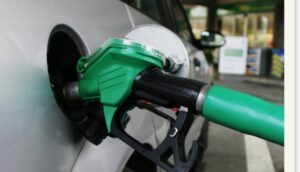Fuel Shortage Persists Despite Arrival of Petrol Vessels at Lagos Ports
Fuel Shortage Persists Despite Arrival of Petrol Vessels at Lagos Ports

The ongoing fuel shortage in Nigeria shows no signs of easing, even as petrol vessels continue to dock at Lagos and other ports across the country.
On Tuesday, our correspondent observed that long queues persisted at filling stations in Abuja, Lagos, and other regions as many tanks remained empty.
Fuel dealers informed The FIRST CLASS GISTS that although petrol vessels are arriving at the ports, this influx may not be sufficient to alleviate the crisis. They reported that depot owners are currently supplying fuel primarily to their own filling stations due to limited stock.
“Depots are still experiencing inconsistent loading. They are prioritizing their own stations and leaving independent marketers without supply,” one dealer explained.
Another source noted, “The problem is not with the vessels arriving; rather, the frequency of their arrivals is inadequate to significantly reduce the queues. Apapa jetty, for instance, requires at least two vessels to unload simultaneously to make a meaningful impact, but currently, they are arriving one by one.”
The Nigerian Ports Authority reported that as of Tuesday, 16 ships were waiting to dock at Lagos ports. According to the ‘NPA Shipping Position’ briefing, two of these vessels are set to unload petrol, while another two are bringing bulk and butane gas.
The vessels are scheduled to dock at ENL Consortium, AMPT, Apapa Bulk, and Greenview Development Nigeria Ltd. terminals in Lagos. Currently, nine vessels are unloading various cargoes, including crude oil, diesel, containers, and gasoline oil at Lagos ports.
The FIRST CLASS GISTS noted that many petrol depots were out of fuel as of Sunday, causing widespread shortages and long queues in Lagos, Ogun, Abuja, Niger, and other states.
Black marketeers have exploited the shortage, with prices soaring to as much as N1,300 to N1,500 per litre in Lagos and Ogun states.
Fuel queues began to form in Abuja and Lagos on Friday and continue to grow. The NNPC Ltd has attributed the supply issues to disruptions in the discharge operations of some vessels and is working to resolve the problem and restore normalcy.
Despite these assurances, the situation remains dire, with increased transportation costs and many filling stations closed, a
ccording to The PUNCH.
TRENDING SONGS
 Shock in Anambra: Bride Disappears Moments Before Wedding
Shock in Anambra: Bride Disappears Moments Before Wedding
 Nigerian Woman Returns ₦330 Million Accidentally Credited to Her Account
Nigerian Woman Returns ₦330 Million Accidentally Credited to Her Account
 APC Don Reach Morocco?’ VeryDarkMan Reacts to Seyi Tinubu Poster
APC Don Reach Morocco?’ VeryDarkMan Reacts to Seyi Tinubu Poster
 Bride Breaks Down in Tears as Wedding Meals Were Kept Secretly While Guests Go Home Hungry
Bride Breaks Down in Tears as Wedding Meals Were Kept Secretly While Guests Go Home Hungry
 Odogwu by Day, Robber by Night: How Marriage Joy Turned Into Tragedy
Odogwu by Day, Robber by Night: How Marriage Joy Turned Into Tragedy
 Nigerian Officials Allegedly Pocket N4–6B Weekly Through Smuggling Cartels at Seme–Badagry Border
Nigerian Officials Allegedly Pocket N4–6B Weekly Through Smuggling Cartels at Seme–Badagry Border
 Ahmad Yerima: Naval Officer to Face No Sanctions After Clash with Wike – Matawalle
Ahmad Yerima: Naval Officer to Face No Sanctions After Clash with Wike – Matawalle
 Trending Video: Muslim Man Joins Wife in Hallelujah Challenge ‘Dress Like Your Miracle’ Night
Trending Video: Muslim Man Joins Wife in Hallelujah Challenge ‘Dress Like Your Miracle’ Night
 Woman Seeks Advice as Late Brother’s Wife Refuses to Mourn Him Following His Death With Alleged Mistress
Woman Seeks Advice as Late Brother’s Wife Refuses to Mourn Him Following His Death With Alleged Mistress
 Nobody Cares About Fine Girls In The UK, I Miss Nigeria — Nigerian Lady Laments
Nobody Cares About Fine Girls In The UK, I Miss Nigeria — Nigerian Lady Laments
Share this post with your friends on ![]()













